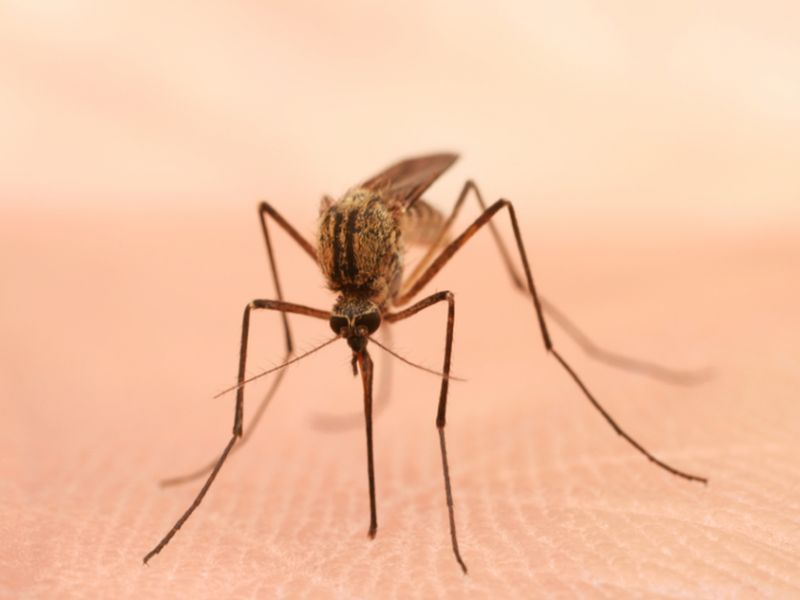

Genetic Tweaks in Mosquitoes Might Curb Malaria Transmission
New methods could be used along with older control techniques, such as bed nettingThursday, September 28, 2017


THURSDAY, Sept. 28, 2017 (HealthDay News) -- Two new methods of genetic modification may reduce the risk of mosquitoes spreading the infectious disease malaria to people, researchers report.
Malaria kills more than 400,000 people worldwide each year. It's a disease that's transmitted by mosquitoes to people. The majority of those who die from the disease are children aged 5 and under in sub-Saharan Africa.
The first of the two new approaches came from a study team led by Marcelo Jacobs-Lorena. He's a professor at Johns Hopkins Bloomberg School of Public Health in Baltimore.
The researchers used a strain of bacteria that can spread rapidly in mosquitoes. The bacteria can also remain long-term in malaria-carrying mosquitoes. A genetically modified version of the bacteria inhibits development of the malaria parasite. That means the chances that the mosquitoes can transmit these parasites to people are lessened.
A second research team studied a method involving a genetic modification that strengthens the immune system of malaria-carrying mosquitoes. The idea was that this would suppress malaria parasites in the insects. And if there were fewer parasites in the mosquitoes, there would be fewer parasites for them to transmit to humans.
This research team, led by George Dimopoulos of the Bloomberg School's department of molecular microbiology and immunology, found that there were fewer parasites after the genetic modification to the immune system. However, the genetic modification also changed the mosquitoes' mating preferences.
How that happened surprised the researchers. They expected that the genetic modifications would make the immune system stronger, but the alteration also changed the insects' "microbiota" -- their natural bacteria balance.
"We believe that by changing the microbiota, we're changing the scent of modified mosquitoes -- which in turn alters mating preference," Dimopoulos said in a Hopkins news release.
"It's the perfect change in mating preference in this case, because it maximizes the chances of producing genetically modified offspring when mosquitoes compete for mates," he said.
The new research could lead to genetically modified bacteria and mosquitoes that could be released among mosquitoes in the wild as forms of natural malaria control. These methods could be used alongside standard prevention methods, such as bed nets and insecticides, the scientists said.
The reports on these experimental approaches were published Sept. 29 in the journal Science.
SOURCE: Johns Hopkins Bloomberg School of Public Health, news release, Sept. 28, 2017
HealthDay
Copyright (c) 2017 HealthDay. All rights reserved.
News stories are written and provided by HealthDay and do not reflect federal policy, the views of MedlinePlus, the National Library of Medicine, the National Institutes of Health, or the U.S. Department of Health and Human Services.
- More Health News on
- Genes and Gene Therapy



























.png)












No hay comentarios:
Publicar un comentario